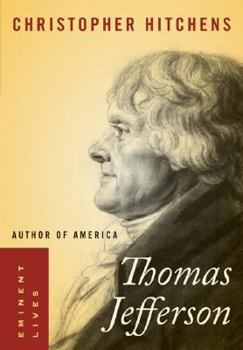Book Overview
Customer Reviews
Rated 5 starsTen Star book The author has a real gem here...
Mr. Hitchens has another gem in this excellent book. As a reader of many books on Thomas Jefferson, I found this book to have tid bits I never knew. Like on page 22 where on reads that it was because Mr. Jefferson was famed as a drafter of resolutions, writer of great explicatory force, and thoughtful compromiser, that he was called upon to draw up the Declaration of Independence. Page 23 'There is no other example in history,...
2Report
Rated 5 starsCongratulations
Christopher Hitchens is one terrific writer. What a great way with words he has. He doesn't sound like some professor spewing out a sleep-enhancing lecture. Quite the contrary. Yet, "Author of America" is quite a scholarly presentation. His words are right down to earth. It reminds me of another book I read called, "West Point: Thomas Jefferson: Character Leadership Education", by Norman Thomas Remick. Plainspeak, though (please...
1Report
Rated 5 starsWho was behind "the opaque curtain"?
This is one of several volumes in the HarperCollins Eminent Lives series. Each offers a concise rather than comprehensive, much less definitive biography. However, just as Al Hirschfeld's illustrations of various celebrities capture their defining physical characteristics, the authors of books in this series focus on the defining influences and developments during the lives and careers of their respective subjects. In this...
1Report
Rated 5 starsVital, probing, powerfully Informed
I have spent the weekend before Monday July 4th with Christopher Hitchens' dense (in the very good way) Thomas Jefferson and regret having the weekend end. If you suspect an underlying love for the man in Hitchens' view, he keeps it well under control, and here is nothing like the hagiography of some of the other treatments. Perhaps it takes someone with the Hitchens spark to see this iconic figure in classical marble as...
1Report
Rated 5 starsA worthy object for Hitchens' distinctive style
I've read two volumes in the Eminent Lives series now, and have been very impressed with both. Paul Johnson's George Washington: The Founding Father (Eminent Lives) and Christopher Hitchens' essay on Thomas Jefferson are very different books. But each was in its own way remarkable. I think it's safe to say that this is a book that few readers will soon forget. As Hitchens notes early on, Jefferson was more than just a "man...
1Report














